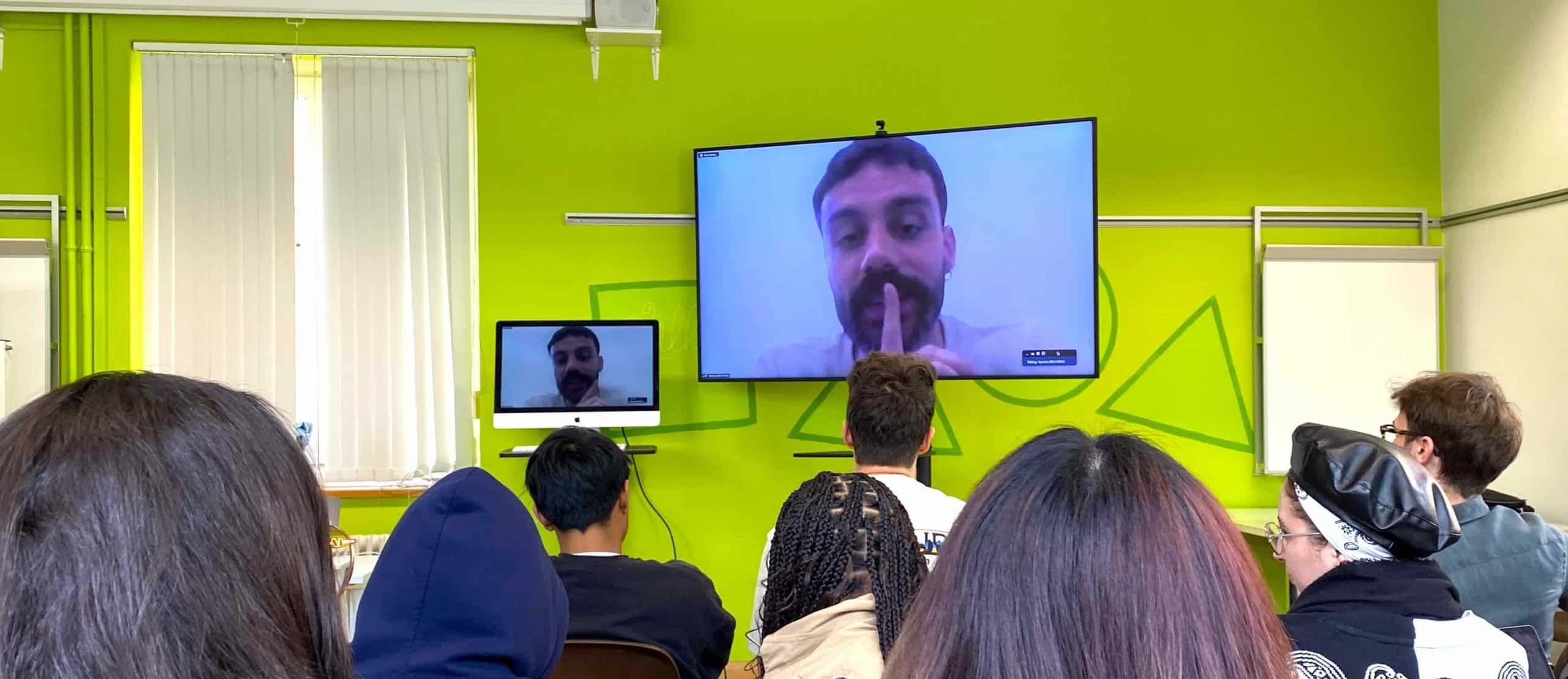
I remember putting ChatGPT on my to-explore list for the 2022 Christmas Break. One of our Master’s students had indeed talked to me about a friend who had told him about a website good at writing beautiful essays.
Having worked with various startups in the field and read attentively Hofstadter’s Gödel, Escher, Bach for my PhD, I thought I knew what to expect. Just like Columbus knew he was sailing to India, Ferrari knew they would win Le Mans ‘66, or Kodak CEO knew people would never look at photographs on TV screens.
I had yet to learn that AI would prove to have the potential to storm education as early as 2023.
Ten months into my ignorance, on October 9th, 2023, I was invited to participate in the General Academic Committee session Dr. Dominique Bourqui had put together on the topic of teaching with AI at BSL. I was then relieved to see that BSL’s various uses of AI for teaching told a somewhat coherent story in three episodes.
Episode 1: AI as a Personal Assistant for Professors
During the General Academic session, Dr. Jan-Erik Meidell explained how ChatGPT was a practical assistant in teaching-related tasks, such as restructuring PowerPoint presentations, revising Syllabi, or, in general, establishing checklists for various topics. Since professors usually have a good knowledge of the subject they inquire about, they can quickly amend ChatGPT’s answers to make them error-free.
The versatility of ChatGPT makes it an ideal first stop to start using AI as a productivity assistant. A growing number of platforms provide specialized environments in which to use AI for a dedicated set of tasks. For education, it is the case with Nolej, a startup with which Business School Lausanne partnered in 2023. Nolej provides professors with the tools to leverage existing underutilized learning materials, such as textbooks, videos, and other online media resources, to rapidly transform them into engaging, interactive material.
Episode 2: When AI is the new business as usual
Professor Mario Saba teaches a class titled “Introduction to Management Information Systems.” The class discusses a wealth of systems that are made more efficient by AI, such as video editing systems, website development environments, and coding platforms for qualitative methods in research. The recap of the systems discussed by Professor Saba on October 9th, 2023, can be accessed online.
The situation is typical of the necessity to teach AI when AI becomes a must for a given industry. In business, we see the steps taken in fields like marketing or human resources regarding content creation or data analysis. In such subjects, the place of AI in education is not disputable. It would be a professional mistake to keep students away from AI because it would simply keep them away from key skills they need to acquire before entering the job market. Luckily, the wealth of resources available to teach these new skills is growing by the minute, as Professor Saba’s presentation perfectly illustrated.
Episode 3: AI enhancing the education narrative
The most sophisticated use of AI in the classroom involves unlocking new teaching approaches. For instance, comparing artificial intelligence and human intelligence can help understand concepts. To do so, Professor Caroll Terleth designed an MBA pre-assignment so that students could use AI to think deeper before his course titled “Advanced Communication and Team Dynamics.” In this exercise, students were invited to reflect on their expectations in communication and teamwork compared to ChatGPT’s descriptions of an ideal communication and team.
Even with such a simple approach, the experience provided Professor Terleth with a wealth of information regarding the profile of the students he would welcome in his class. He even judged the level of reflection reached by the students higher than the level of the two previous years, when students were invited to a pre-assignment task without any support from AI.
This approach is typical of the benefits learning can get from using AI: new learning scenarios that might accelerate or deepen the reflection and understanding of the learners can be put together. There is no doubt that this third episode of the AI trilogy in education is going to be the most disputed. I would not be surprised if it ends up being the most fascinating.
I am convinced that the future of education will neither be in favor of nor against it but with AI. Therefore, I hope this trilogy will help quickly identify and understand the purpose of the numerous AI platforms now available for education and thus foster a fruitful conversation on the topic.
Dr. David Claivaz
